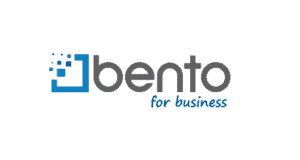The energy industry will always be needed, making it a potentially profitable sector for businesses. Some trends are helping to boost renewables so that they are more broadly adopted by consumers. As a result energy business spending will increase and require better expense management driving the advent of energy debit cards.
Big market players such as Siemens ABS and Tesla have made strides with battery storage, allowing people to keep batteries in their homes that can be used to power renewables. Some experts believe that battery storage will grow to 45 megawatt hours per day over the next five years, helping to contribute to the country’s electric grid.
Energy industry trends
In addition to advances in battery storage, people are moving to microgrids, reducing their dependence on utility companies. Globally, the microgrid market is expected to reach $21 billion by 2021.
There is also a rise in energy consumption. Along with 3.7 percent economic growth, energy consumption rose by 2.1 percent in 2016. The consumption around the world continues to grow as impoverished areas around the world join the utility grid.
Renewable energy is now more affordable
Renewable energy used to be out of reach for many people, but it has become much more affordable. Since 2009, solar prices have plummeted by 62 percent, placing solar technology within reach of more people. Offshore wind power has also halved in price.
In addition to consumers who are adding solar panels to their homes, corporations are committing to renewable energy goals to reduce their carbon footprints. These trends are going to require an influx of energy businesses to handle all of the renewable energies and solar energy installations.
Increasing demand for energy installation technicians
The trends in the energy industry, including advances in battery storage technology, increasing consumption, the drop in the prices of renewable energy, and the dedication by corporations to find greener solutions will combine to create many new jobs in the energy installation industry. Some of these jobs will include the following:
- Solar energy installers
- Wind technology installers
- Battery installers
- Hydropower installers
The U.S. Bureau of Labor Services reports that the expected job growth for solar installers is expected to be 105 percent through 2026, for example. All of this means that the energy industry is a good sector for businesses and for employees. Businesses might need to adopt better expense management strategies to manage their energy business expenses so that the costs do not balloon as the companies expand. One way to keep a lid on costs is to use energy business credit cards or energy debit cards to make spending more transparent.
What energy technicians do
Solar technicians must assemble, install, maintain, and repair solar panels on roofs and at other locations at their worksites. Wind techs travel to wind turbines, climbing them so that they can make repairs and perform maintenance work. Battery storage installer technicians travel to homes to install battery storage systems and also perform maintenance and repairs on them.
All of the different types of technician jobs require a significant amount of travel. For energy businesses, keeping control of travel expenses is crucial. Energy technicians will have travel costs, lodging costs, and food costs. In some cases, they may have to be near their work sites for weeks and to stay in hotels. Current processes for managing these expenses are inadequate.
Technicians must log everything, including when they arrive and depart the worksite, every purchase that they make for the company, and other things. They must save all of their receipts and complete expense reports. The time that they must spend on these expense tracking tasks is in addition to their job duties and can add unnecessary stress to their jobs.
How energy debit cards can help to reduce stress
Companies can use energy debit cards to reduce these stressors for their technicians. Installer debit cards provide greater spending transparency, and the installers can simply use the cards to make purchases for their jobs instead of having to spend their own money and log everything.
The companies can set spending restrictions on the installer debit cards that they give to their employees, and the employees can take photographs of the receipts to submit them electronically rather than having to store all of their receipts.
An energy business debit card is a better choice than an energy business credit card.When employees make purchases with energy debit cards, the purchases are subtracted from the company’s existing money rather than being added to the company’s debt. Energy debit card purchases do not incur interest, and companies can turn individual installer debit cards off remotely if the cards are lost or misused.
In addition to being a better choice than installer credit cards, energy debit cards are also better than using cash or check systems. Cash and check systems may be targeted for fraud. When workers are at remote work sites, waiting for checks to be issued for purchases may mean that they have job stoppages that can eat into their productivity.
How energy debit cards protect employees and employers
Energy debit cards offer more protections than energy credit cards. The employers are able to set individual spending limits on each business energy debit card that they issue. The spending limits can be set by the day or the week.
Employers are also able to restrict the types of spending that can be completed. This means that if someone steals the card number and tries to purchase something that is unauthorized, the purchase will be denied. Unlike installer credit cards, debit cards can be turned off remotely with the click of a mouse or a tap on the screen from a mobile device or computer 24 hours per day.
Why an expense management system is crucial for energy businesses
For energy businesses, having a strong expense management system is vital. Businesses need to write thorough purchasing policies and share them with their employees. All of the employees should be trained in the expense policy so that they understand the types of purchases that are authorized and what they cannot buy.
Businesses should also consider getting rid of traditional methods of expense management, including petty cash, per diems, reimbursements, and checks. All of these traditional systems have less transparency and may be the sources of waste, abuse, and fraud. Energy debit cards can replace all of these systems and help to prevent fraud and waste.
How energy business debit card controls work, and why they are better than energy credit cards
Debit cards for energy businesses come with card controls that let business owners stay on top of their expenses. The businesses can restrict individual cards to specific purchases or to certain merchants. They can also limit how much an employee can spend by the day or week and turn cards off or on remotely with the click of a button.
Cards can be limited to specific locations, times, and amounts. Business owners can view the expenses in real time from their dashboards. Finally, for more complex expense management, energy businesses can generate virtual cards instantly. All of these unique features make debit cards superior choices to business energy credit cards.
Business Visa debit cards
Bento for Business is a leading payment solutions provider for businesses with its Visa debit cards. The company’s energy debit cards come with all of the extensive card controls that energy businesses need so that they can effectively manage their expenses. The debit card controls solve many of the issues that are presented by traditional expense management systems, including checks, cash, reimbursements, and energy credit cards.
Bento is an established and trusted company that has thousands of loyal customers across the U.S. The company has earned hundreds of positive reviews from its customers and has been profiled in national publications, including the Wall Street Journal, Forbes, and Barron’s. Energy businesses can ask for a free demo to learn more about how the cards work. They can also enjoy free 60-day trial periods. To learn more, call 866.220.8455.






